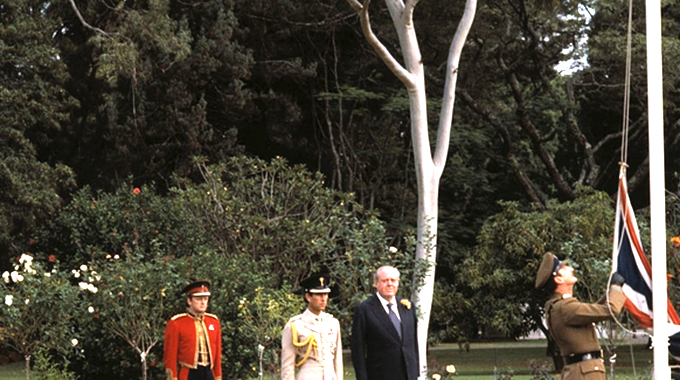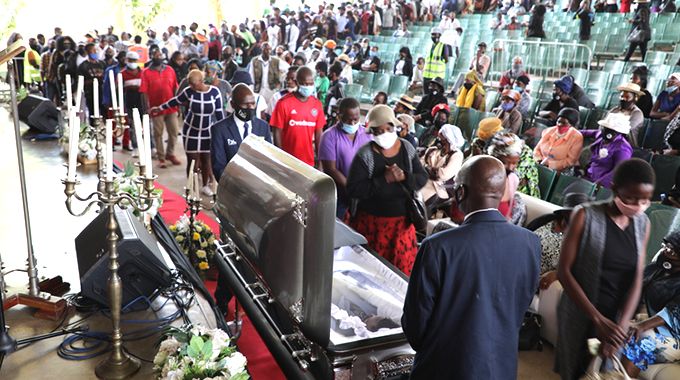Britain, Lords of ignorance

We were amused last week to learn that 40 years after Prince Charles witnessed the lowering of the Union Jack, the British through their House of Lords still find time to expend energy and time discussing Zimbabwe.
Not that we were surprised, but we really found it extremely out of sync with 21st century mode of international engagement for nationals of a foreign country to see it as their right to prime discussion on Zimbabwe as if it were a province of the then British Empire.
One would think that a crisis over their country’s Brexit self-immolation and a new lockdown prompted by the ineptitude of the British leaders would take most of the Lords’ attention.
Instead, it was this small African country the Lords chose to focus on.
For us who have committed our lives to Writing Back to Empire, the latest demeaning statements from eminent British representatives always vindicates our lifelong struggle against long colonialism.
We feel vindicated that the struggle to continue un-writing the lies and stereotypes about us as Zimbabweans and Africans in general must remain relentless.
Our prayers are to the younger Brits whom we hope will refuse to be contaminated with the absurdities and idiosyncrasies of the older generations seemingly stuck in a time warp when England was still a huge Empire.
So what really prompted the House of Lords to commit time and energy to Zimbabwe, a small southern African country well south of the Sahara?
We need to go back into history and drink from the rich gourd of one Dr Machivenyika Mapuranga.
In one of his interviews as a diplomat, Dr Mapuranga attributed the West’s obsession with Zimbabwe to what he called “a painful unfinished project” to whitewash black people or indigenous populations.
Dr Machivenyika tells us something interesting about the British attitude towards Zimbabwe.
He talks of records at the Colonial Office in London that refer to Australia, Canada, New Zealand, South Africa and Southern Rhodesia (now Zimbabwe) as “white men countries” earmarked for permanent white settlement. The long term objective of this plan was to eventually outnumber the indigenous populations in these countries. This policy succeeded in Australia, New Zealand and Canada, and almost triumphed in South Africa.
Besides embarking and implementing the revolutionary land reform programme, Zimbabwe is still “marked” because it reminds the British of their failure to make the county a white men’s country.
But the land reform programme and the colonial records of the British’s devious plans don’t fully explain the obsession with Zimbabwe.
A number of factors explain this relentless and coordinated spotlight.
While the New Dispensation has made engagement and re-engagement the hallmark of President Mnangagwa’s administration, this should never be viewed as a sign of weakness.
One would think that instead of solely depending on warped briefings from local opposition figures and civic society leaders in the country, the House of Lords representatives must rely on information obtained from their official representative in Zimbabwe.

Prince Charles (second from left) and Lord Soames watch as the Union Jack is lowered to end the British occupation of Zimbabwe in 1980
I say this in light of outright manipulation and misrepresentations of facts meant to promote a certain narrative based more on fiction than facts.
Let’s take for example, the arrest of Henrietta Rushwaya for attempting to smuggle 6kg of gold out of the country.
The manner in which the matter was discussed in the House of Lords had one thinking that it’s either the British themselves or their lackeys that arrested Rushwaya.
Yet, Rushwaya was arrested by Zimbabwean security agents under the overall command of the Head of State, President Mnangagwa.
It is not fiction or hearsay that President Mnangagwa has made corruption busting one of his national priorities.
Even with the consciousness of the New Dispensation’s thrust, some media organisation working in cahoots with local opposition parties and some foreign anti-Zimbabwe detractors are seeking to build fictitious narratives of soiling the First Family’s image.
They tried hard to link them to the attempted gold heist and even drew flimsy relational ties.
A closer look at the House of Lords debate reveal a sad collusion between local opposition political parties and some lobby groups in UK, whose task is to feed toxic information to top British representatives.
It is this devious collusion and the demeaning attitude of Lordships in the House of Lords that prompted Honourable Kindness Paradza, the parliamentary chairperson of the Foreign Affairs committee, to issue a robust response in the august House.
In a statement issued last Thursday, Hon Paradza could not have put it any better when he said: “The lordships spent quite some time on the issue of corruption in Zimbabwe. One eminent peer, Lord St. John of Bletso, stated that there have been ‘no prosecution for corruption’ in Zimbabwe and even asked what measures the British government was taking to get South Africa involved in Zimbabwean affairs.
“It is this kind of ignorance served up with characteristic British arrogance and condescension which, l believe, Mr Speaker, all Zimbabweans from whatever political persuasion they night hail- should find deeply offensive, intrusive and completely unacceptable.”
Indeed, every Zimbabwean must view their lordships’ overbearing interest in Zimbabwe as demeaning.
We are, however, consoled by the fact that the collusion between local opposition lackeys and their foreign anti-Zimbabwe detractors is soon going to be checkmated by the Patriot Bill, soon to become law.
The Bill seeks to impose stiff penalties on persons campaigning against the country through private correspondence with foreign governments and harming national interests.
Drawing from similar pieces of legislations such as the Logan Act in the US, which outlaws consorting with foreign nations against the State, the Patriotic Bill will go a long way in instilling a sense of responsibility on the country’s self-hating opposition parties that are obsessed with making the people suffer so as to get into power.









Comments